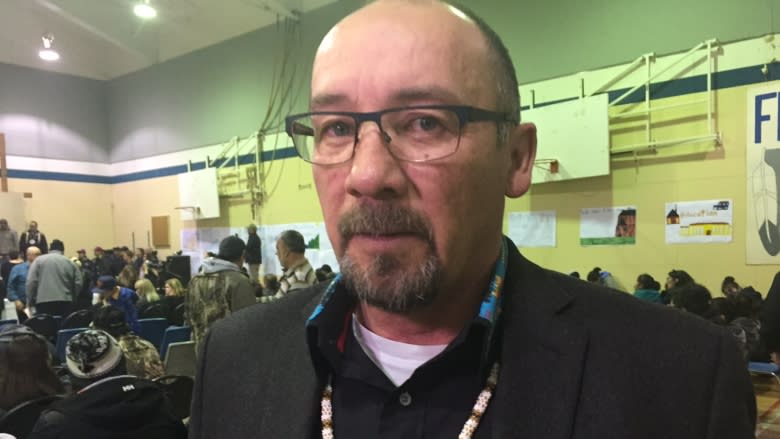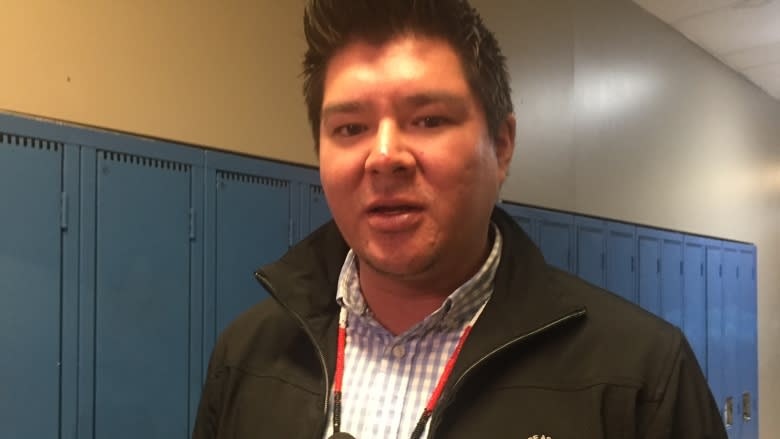Federal, provincial governments pledge 'sustainable future' for Kashechewan
Indigenous, federal and provincial leaders were in Kashechewan First Nation on Friday to sign a new agreement that commits the parties to plan for the community's future.
"What we're signing today is the hope for the better of our children," Kashechewan Chief Leo Friday said during a public address at the reserve's high school.
"We mark March 31 as the first step to sustainability for our community."
An action plan, still to be developed, will support the short, medium and long-term goals of the First Nation, according to a written release from the federal government, issued in conjunction with the announcement.
'They don't want to live here in this uncertainty'
The plan will focus on improving housing, socio-economic sustainability, health programs and facilities, infrastructure, schools and community facilities.
The initiative will also "include consideration" for options to relocate the flood-prone First Nation on the James Bay coast, hundreds of kilometres north of Sudbury, Ont., to higher ground.
During the announcement, handdrawn pictures from Kashechewan students lined the community's high school gym with messages such as, "We want a new house! We want to move to higher ground!"
"There's a pretty clear consensus in those pictures around the wall that they don't want to live here in this uncertainty of the ice jams and flooding or no flooding," Indigenous and Northern Affairs Minister Carolyn Bennett said.
"They want to go somewhere where they can have the certainty that their community will be intact. Their house will be intact and that they will be able to complete their education with certainty."
'I'd like to see things happen'
During a referendum held in 2016, 89 per cent of the First Nation voted in favour of relocation.
Friday said the move to a spot about 20 kilometres up the Albany River could cost between $500 million and $1 billion, but would be money well spent considering the costs to repeatedly fly people away from the threats of spring flooding.
"I don't believe in processes anymore," Mushkegowuk Council Grand Chief Jonathan Solomon said. "I'd like to see things happen."
Rebecca Friday, Mushkegowuk Council deputy grand chief, urged the community to give the agreement a one-year timeline.
"If they're not going to come up with anything, then let's let this agreement be a failure," Friday said.
"We don't want to see a failure again. We got to work hard."
'We will live up to that agreement'
Ontario's Minister of Indigenous Relations and Reconciliation David Zimmer insists the plan will carry through.
"We did not sign that memorandum lightly," Zimmer said.
"We will live up to that agreement."
According to federal officials, a steering committee, consisting of representatives from the community as well as federal and provincial departments, will provide guidance on the action plan and will report on its progress yearly.
"The important part is working on the implementation and following through," said Nishnawbe Aski Nation deputy grand chief Jason Smallboy, who advocates for Kashechewan.
"To see that we're getting the commitment from Ontario and Canada is a good step forward."




